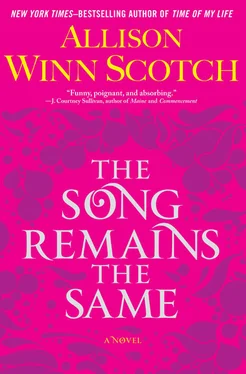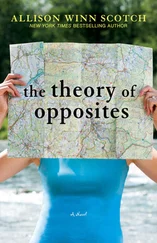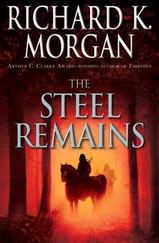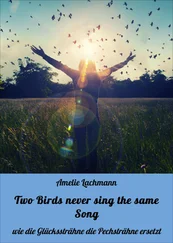“The other night. At the gallery. I made him stay so you wouldn’t have to spend more time with him.”
“I don’t mind spending time with him,” Nell says, to which Rory rolls her eyes.
“Just trying to, you know, do you a favor,” she says.
“Rory,” Indira says in her most meditative of voices, “you really need to stop holding this grudge. If your sister doesn’t, then you shouldn’t, either. He is a man who made a mistake and who has apologized for that mistake. We’re all human, and we all have our desires and temptations.”
“We’re not talking about Dad here,” Rory says, gulping her beer deeply now. She’s heard this before. She flicks her hand, already tired of the conversation, and heads up to find Hugh.
“Want to explain that?” Nell says after the footsteps up the stairs have subsided.
Not really, Indira thinks, then wonders which she’d rather talk about less: the house or Francis and his complications in that very house. She rises to get more tea while Nell eyes her, waiting, looking just like she used to as a toddler, always waiting for someone—usually Francis—to tell her what to do.
Indira pours the tea slowly into the mug, watching the steam rise, wishing—just like Peter had a few weeks back—that Nell would never have to remember any of it. Would it all just be so much easier if she couldn’t remember any of it?
But she knows that isn’t possible, so she puts out a morsel, hoping it will satisfy her for the time being.
“That house you remembered,” she says, turning back to her daughter. “I wasn’t there with you in it. Rory was—just for a week—you were there for the summer. You were thirteen the last time you went.”
“The last time? There were others?”
Indira exhales and nods. “A few others. I can’t recall exactly—two, three.” Four, she thinks, knowing full well how many.
“And that last one? Why was it the last?”
“That was the summer your father left us.”
Nell furrows her brow, absorbing this. “Jamie told me that he left in the fall.”
“Does it matter?” Indira says.
“Yes,” Nell answers. “Yes, of course it matters.”
Indira knows that it matters, too, but still she hedges. “It was all very complicated. That time. That time in our marriage. He left and came back, left and came back. Finally, he just left.”
Indira doesn’t tell her of that last summer, when Nell had been given the choice—stay with Indira and Rory—go to day camp and spend lazy evenings in the pool or chasing butterflies or pressing out lemonade—or join him on the farm down there. Her farm. Heather’s farm. And Nell made her choice, clear as glass.
She doesn’t share now that Nell didn’t even hesitate when Indira sat her down in June with a double scoop of ice cream and explained that Daddy would be moving out, and she longed for her to stay behind, but that he longed for her to go with him. Not even an iota of hesitation. Indira doesn’t talk about his demons, how he tried to remove himself when those combustible bouts hit, but that depression was a tricky beast—as were the beasts he fed his depression with whenever it got bad: cocaine, booze, opiates. She doesn’t say that she thought the kids were oblivious to it until everything crystallized later, as it regrettably does sometimes with parenting. That the kids, of course, weren’t oblivious at all. Nor does she speak of the strange mix of pride and shame she felt—still feels—for enduring it, for sticking with him until he opted to no longer stick with her. That the broken lamps, the shattered plates, the wineglasses against the wall—that maybe part of Indira still thinks that this was simply passion, even though a very needling part of her knows that this is among the worst of the untruths she tells herself. But Francis created his best work at his lowest moments, and the immature seed in Indira still can’t free herself from the satisfaction this knowledge brings her. That she was there for the war, and that from that war came something beautiful.
“So, anyway, with all due respect, Mom,” Nell says, snapping Indira to, “I don’t give a shit about your marriage. I want to know about the house.”
Indira tries not to look relieved at this, because there are too many things that she doesn’t want to explain, to dredge up, things that she thinks neither of the girls can possibly remember—though before her accident, yes, maybe Nell knew. Definitely Nell knew, though the two of them, mother and daughter, had both spent a decade pretending that Nell didn’t know anything at all.
Indira sips her tea as calmly as possible, hoping that her quivering fingers don’t betray her.
“Yes, the house.” That’s an easier question to answer. “The house is in Charlottesville. Virginia.” She clarifies because she can never remember just what Nell has retained: facts, states, statistics, or if that’s all gone, too.
“Why there?”
Indira clears her throat and wonders how much of a nonanswer she can provide while still providing enough of one. “That’s where your father lived. That’s where he lived the other half of his life. That’s where he lived his life without us.”
“Eleanor Rigby”
—The Beatles
S o, today, we’re going to do some free association,” Liv says from the armchair in my living room.
“Okay.” I shrug.
“I don’t want you to think about anything before you speak. I want to tap directly into that emotional wall, see what comes over it—or under it—before your brain kicks in.”
“Emotional wall? Explain the metaphor, please.”
“I’m sorry.” She waves her fingers, and I notice that her light pink polish is chipped. That if you don’t look closely, she’s immaculate—sleek pants, fitted cashmere sweater—but she’s more than that, too: the chipped polish and the dog hair on her shins make her likable, human. “It’s a term I use to describe the dams we build around ourselves. Our safe havens. Though sometimes these havens do more harm than good. Sometimes, they block us from getting to the really good stuff. The real emotional core.”
“Gotcha.”
“So just…the first thing that comes to mind, just spit it out.”
“That’s generally how I work these days, anyway,” I say, and she smiles, so I smile, and I feel the knot in the crevasse of my right shoulder blade untangle ever so slightly. It’s been there, wedged in, for the forty-eight hours since we returned from my mother’s.
“In some ways, perhaps that’s gratifying—the living-in-the-moment experience,” Liv says.
“Well, I’m trying to be different, intentionally or not.”
“How so?”
“Less buttoned-up, I guess. More…open. More fabulous.”
“Fabulous?”
“I know it sounds silly. I feel this pressure to take this chance and do things differently. I…well, I have this image of myself—like…Rachel from Friends .” I immediately regret saying it, chiding my immaturity. I want the laugh track!
“Rachel from Friends .” She grins. If she’s laughing at me, she doesn’t give it away. “How so?”
“Just…carefree. Without the problems that my dysfunctional family has wrought. Well, really, without all of my problems, period.” The clothes! The apartment! The love life! I want that, I need that. I promised myself back in the hospital.
“That doesn’t seem unreasonable,” she says, “though I wonder if you find it strange—that a difficult tragedy might actually be an improvement to where you were before.” I eye her. I can see now how she might trick me into thinking she’s my friend when, really, there’s no doubt that she’s my therapist. Dr. Macht picked wisely, it seems, in assigning the two of us to each other.
Читать дальше












